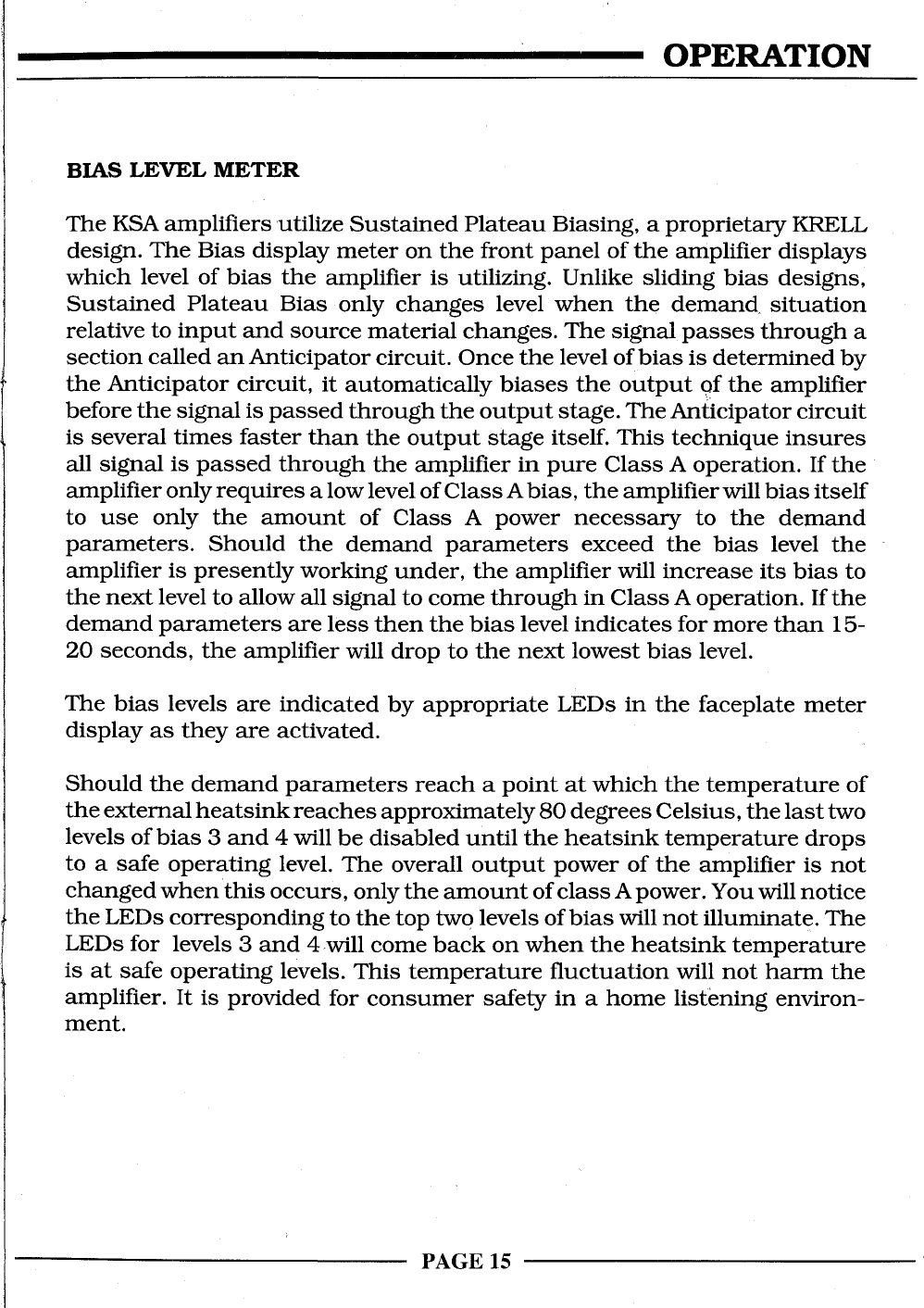
OPERATION
BIAS LEVEL METER
The KSA amplifiers utilize Sustained Plateau Biasing, a proprietary KRELL
design. The Bias display meter on the front panel of the amplifier displays
which level of bias the amplifier is utilizing. Unlike sliding bias designs,
Sustained Plateau Bias only changes level when the demand situation
relative to input and source material changes. The signal passes through a
section called an Anticipator circuit. Once the level of bias is determined by
the Anticipator circuit, it automatically biases the output ~f the amplifier
before the signal is passed through the output stage. The Anticipator circuit
is several times faster than the output stage itself. This technique insures
all signal is passed through the amplifier in pure Class A operation. If the
amplifier only requires a low level of Class A bias, the amplifier will bias itself
to use only the amount of Class A power necessary to the demand
parameters. Should the demand parameters exceed the bias level the
amplifier is presently working under, the amplifier will increase its bias to
the next level to allow all signal to come through in Class A operation. If the
demand parameters are less then the bias level indicates for more than 15-
20 seconds, the amplifier will drop to the next lowest bias level.
The bias levels are indicated by appropriate LEDs in the faceplate meter
display as they are activated.
Should the demand parameters reach a point at which the temperature of
the external heatsink reaches approximately 80 degrees Celsius, the last two
levels of bias 3 and 4 will be disabled until the heatsink temperature drops
to a safe operating level. The overall output power of the amplifier is not
changed when this occurs, only the amount of class A power. You will notice
the LEDs corresponding to the top two levels of bias will not illuminate. The
LEDs for levels 3 and 4.will come back on when the heatsink temperature
is at safe operating levels. This temperature fluctuation will not harm the
amplifier. It is provided for consumer safety in a home listening environ-
ment.
PAGE 15


















